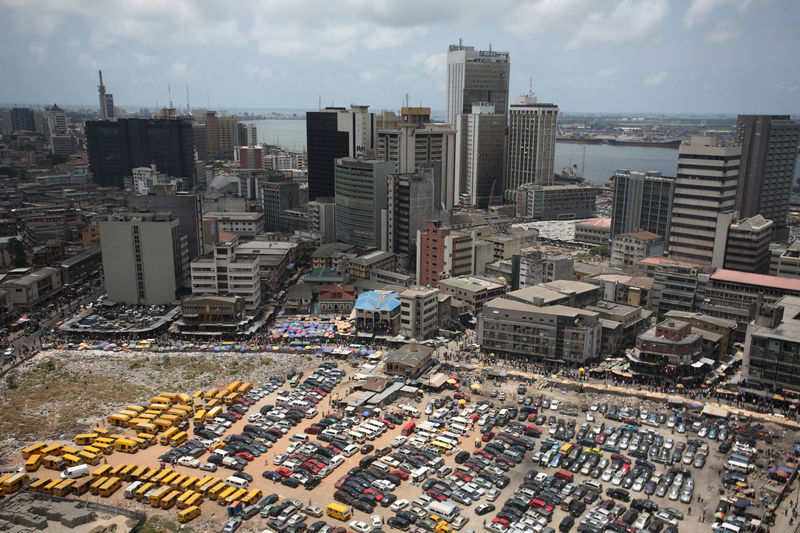Asia FX moves little with focus on US-China trade, dollar steadies ahead of CPI
(Adds details, quote, background)
By Chijioke Ohuocha
ABUJA, April 15 (Reuters) - Nigeria's annual inflation
climbed to a more than four-year high in March, rising 82 basis
points from a month earlier to 18.17%, the statistics office
said on Thursday.
Galloping food prices have heaped pressure on households in
Africa's largest economy, which is also facing a shrinking
labour market and stagnant growth at a time of mounting
insecurity. Food prices rose 1.16 percentage points from the previous
month to 22.95% in March, the National Bureau of Statistics
(NBS) said. Inflation hit 18.72% in January 2017.
"This rise in the food index was caused by increases in
prices of bread and cereals, potatoes, yam and other tubers,
meat, fruits, vegetables, fish and fats," the NBS said in a
report.
Nigeria's government has said it will cut import duty on
tractors and mass transit vehicles to try to reduce
transportation costs and tackle high food prices that are
contributing to the double-digit inflation. President Muhammadu Buhari has made investment in rail and
road a focus of his administration's drive to kick-start growth,
but falls in public revenue - linked to lower oil prices due to
the global coronavirus pandemic - have checked his ambitions.
Given the high-inflation backdrop, few analysts expect the
central bank to keep rates on hold, which it has done since last
September, as prices have more than doubled the bank's inflation
target band of 6% to 9%.
Nigeria, Africa's most populous country, went into recession
- its second since 2016 - in the third quarter of 2020, as the
coronavirus pandemic caused oil prices to crash, slashing state
revenue, creating large financing needs and weakened the naira.
The economy emerged from recession in the fourth quarter but
analysts say the weak naira currency continues to fuel
inflation.
The central bank sold dollars to foreign investors for the
first time this week since December, quoting the naira at a low
of 435.81 for the 150-day forwards.
